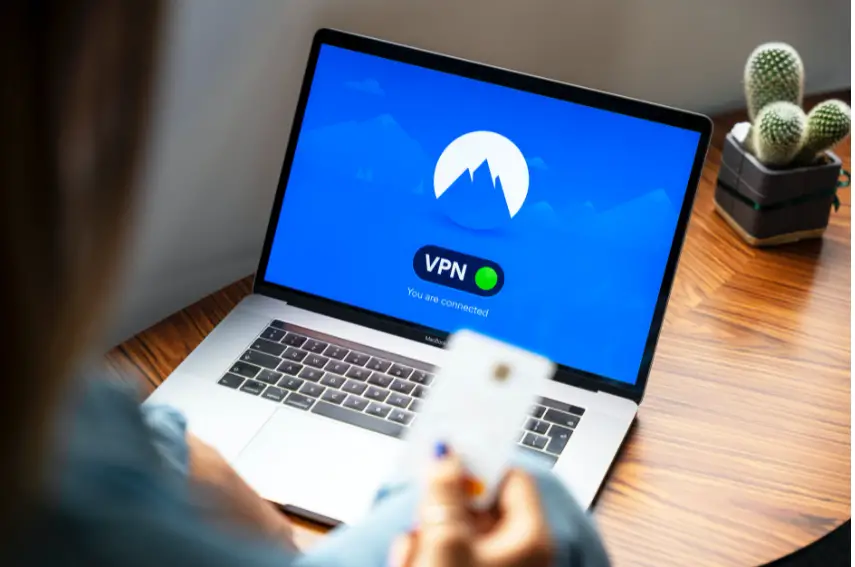Can You Use Multiple VPNs at the Same Time
When your internet security is your primary concern, using a VPN is not in question. Looking for ways to increase the level of security might have led you to the idea of using several VPNs at once, instead of using just one.
Multiple VPNs can be used at the same time. This means that the data will travel through more than one server before reaching its destination. Using two or more VPNs at the same time might take a toll on your internet speed, but it will mask your IP address multiple times and the data will be re-encrypted on every server.
However, whether or not you are going to be able to get the maximum from chaining VPNs like this solely depends on your location and the connection speed. If these conditions are met, you might not feel the efficiency loss in multiple VPN chains.
What Is VPN Stacking?
VPN stacking is a term that is used to describe using two or more VPNs at the same time. This means that instead of your connection being secured via one VPN server, it will be secured twice or more via additional VPN servers.
Usually with the mention of a double VPN people often think that they will get double encryption. For example, if one VPN is securing a connection with AES-256 encryption, with two VPNs they would have AES-512.
This is only partially true. Imagine the VPN as a flow path, where the data travels from the original source via one server and then it reaches its destination. When you have two VPNs in the chain, the data travels through the first one, and then through the second one until it finally reaches its destination.
This means that the data goes through the process of encrypting and decrypting data twice. Your IP address gets changed twice (or as many times as the number of VPNs that you have).
When you have more than two VPNs involved in the process, then you might encounter terms like VPN chaining, VPN cascading, multihop VPN, and others. This works the same way it works when there are only two VPNs involved – now it’s only multiplied by the number of VPNs involved.
Pros of Using Multiple VPNs
Usually, VPN adds an extra layer of security and hides your online identity. Using multiple VPNs will increase the level of security by adding an extra layer and changing IP addresses one extra time.
Basically, once you connect to the second VPN, they will not be able to recognize your real address. Only the virtual IP address that was assigned to you by the first VPN server you connected through will be visible to the second VPN server.
The third VPN server in line will only see the second IP address and so on, making it very hard to trace the data back to the original IP address. Every new VPN server in the chain will also encrypt the data one more time, making it extra secure.
This is actually the biggest perk of using multiple VPNs – it is nearly impossible to discover your original location, meaning that you will be able to hide your digital footprints in a very smart way.
By using multiple VPNs you are also increasing your online security since the connections between two servers are being made via TCP and UDP.
VPN users are also facing really small, but still very real, risk of being a victim of a traffic correlation attack. This basically means that you are being exposed when the correlation between incoming and outgoing traffic on the VPN server is discovered.
Cons of Using Multiple VPNs
Just like everything else in life, there are always two sides to the coin, so although it may sound like using multiple VPNs is the perfect solution for you, don’t jump straight to conclusions.
Truth be told, there are more pros than cons, but you should consider both of them before deciding to dive into that. The biggest issue is the reduction of connection speed you will experience.
Even with one VPN, the speed can be significantly lower than what you are used to, simply because the data has to travel through one extra channel before arriving at its final destination.
With using multiple VPNs, this process is just multiplied, meaning that it will take longer for the data to travel through all those chains. This issue can be alleviated (but not completely solved) by only using VPN servers that are close to your actual geographical location.
This will help a little bit, but the re-encryption process is what will have the biggest effect on the internet speed.
However, this loss in speed should not reflect in loss of performance. In the end, if your main goal is to get that extra security and that is the main reason why you want to use multiple VPNs at once, then go for it.
Also, another factor to consider here is your starting internet speed. If you are already having a super-fast connection, then you shouldn’t notice any significant difference when you use multiple VPNs. Using them will reduce the speed, but not to the point where it will be so slow you would notice.
If you are having a bad internet connection, then you should be careful which VPNs are you using for chaining, because sometimes the quality of the VPN provider can also play a big role in maintaining a good speed and connection.
Another con to consider is that using double or multiple VPNs can be very costly. It is not recommended to use free VPNs mostly because they cannot offer a good service, and they are having a hard time keeping the connection steady and without interruptions. Paid versions are always a better choice, due to their higher level of quality.

